30th April 1997
Seventeen years ago, on the last day of April, our mother, whom we called ‘Jhaiji’ passed away. She died the way she had lived; at complete peace with herself, and without becoming a burden or inconvenience for any one, even for a single moment. She was diagnosed of cancer a few weeks before her demise, and she was with us at 37, Lodhi Estate in New Delhi for precisely 17 days. Our revered father had brought her for treatment, but the way it turned out, she came merely to bless us. And having given us her benediction, she went away; with no regret, no rancour, no complaint. It is our belief that she attained ‘moksha’ the liberation from the cycle of birth and death.
What went with her was the language she spoke…our mother tongue. Punjabi is on the decline in India, and our children do not use it any more. And the specific form of Punjabi which she used was quite different and, for us, it is gone forever. All these years, I was under the impression that it was a rustic, rural version of Punjabi, and she used it because she had been brought up in a village, and did not have the benefit of going to a good school. I thought it was something like the cockney portrayed by Bernard Shaw in his paly, Pygmalion. But now, when I have more time on my hands to study the subject, I think I was mistaken. This is a story of my research on our mother tongue.
The Indian Punjab, as we now know it, has an area of 50,362 square km, which is 1.5 per cent of India. Its population is 2.77 crore of which 70 per cent are Punjabi speaking. Since the Punjabis living outside the Punjab rarely use their mother tongue the number of Punjabi speaking people is less than two per cent of our national population.
A Journey Down Memory Lane
Against this backdrop, I mulled over the words of our national anthem. As we all know, its original version was penned by Gurudev Tagore more than a hundred years ago, and he sang it in Kolkata on 27 December 1911. In the very first stanza it says, ‘Punjab, Sindh, Gujarat, Maratha…’ It seemed somewhat incongruous to me that a state so small as ours should find a pride of place right in the beginning of our patriotic composition! However, before I begin this tale, it is necessary for me to give you a small insight into our roots.
I was born in Peshawar (Pakistan) in June 1941. The very next year, our father joined the Army and was sent to the Burma front where he stayed for nearly four years. We shifted to our family house in a village called Faruka, in District Sargodha. It was a large joint family, and our grand mother and great grand father were there to guide us. Given below are a few pictures give an idea of what we looked like.
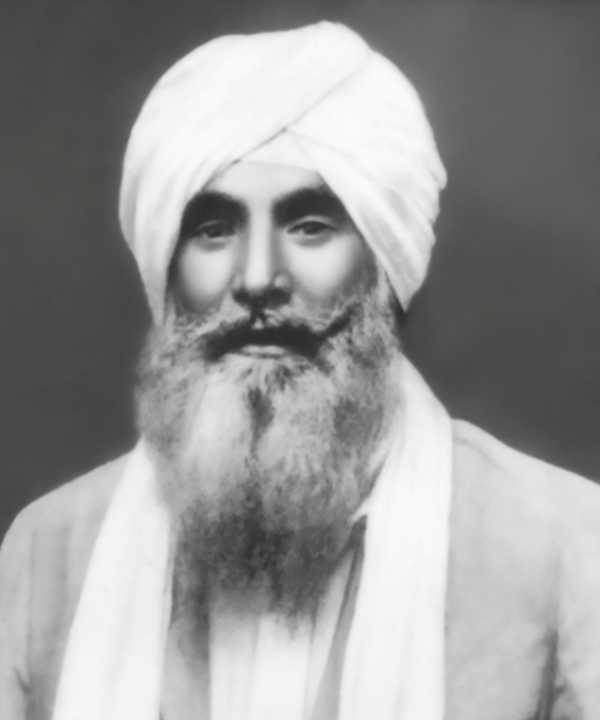 Our Great Grand Father Bapu Bhag Singh ji (1843-1947)
Our Great Grand Father Bapu Bhag Singh ji (1843-1947)
Our Grand Mother, Bhabhi Prem Kaur ji (1878-1967)
With our parents and my elder brothers in Karachi, in Dec 1942
The Start of my Learning Process
It is now evident to me that our ancestors had lived in that part of the world for several generations. The language we spoke was the one which Jhaiji spoke all her life. And every one around was quite comfortable with it. It was written in the Arabic script and therefore, when I started my schooling, the first alphabet taught to me was the one in which Urdu is written. This script is known as ‘Shahmukhi’. I did not know at that time, but I now find that the ‘province’ in which we lived was very large. And it did indeed deserve the pride of place which it received in our National Anthem. I now find that whereas Punjabi language is not confined to any borders, the people who speak it have their origins in the land of the five rivers. The geographical landscape has remained unaltered but the political boundaries have been changing very often. For those who like to see maps, I have gathered a few to refresh your memory.
The Five rivers get together and merge into the Indus before entering the Arabian Sea.
The Political Scene.
The political boundaries have been changing at regular intervals. During the reign of Maharaja Ranjit Singh a portion of Kashmir extending up to Leh became part of the Punjab, though the areas East of Sutlej were not a part of his empire. The picture looked as below:
Map of the territories ruled by Maharaja Ranjit Singh. Portions East of Sutlej were not a part of his empire
Punjab in 1909. It extended beyond Delhi and its area was 3,46,388 sq km (the present Pujab is 50,363 sq km)
Administrative Divisions of the Punjab in 1909
During the British rule the Divisions of the Punjab were as under:
| Delhi Division | Hissar · Rohtak · Gurgaon · Delhi · Karnal · Ambala · Simla |
| Jullunder Division | Kangra · Hoshiarpur · Jullunder · Ludhiana · Ferozepore |
| Lahore Division | Montgomery · Lahore · Amritsar · Gurdaspur · Sialkot · Gujranwala |
| Rawalpindi Division | Gujrat · Shahpur · Jhelum · Rawalpindi · Attock |
| Multan Division | Mianwali · Jhang · Multan · Muzaffargarh · Dera Ghazi Khan |
| Total area, British Territory | 97,209 square miles (2,51,769 sq km) |
| Native States | Patiala · Jind · Nabha · Bahawalpur · Sirmur · Loharu · Dujana · Pataudi · Kalsia · Simla Hill States · Kapurthala · Mandi · Muler Kotla · Suket · Faridkot · Chamba |
| Total area, Native States | 36,532 square miles (94,618 sq km) |
Total area |
133,741 square miles (3,46,387 sq km) |
THE PUNJABI LANGUAGE
A Brief Introduction to Languages of the World
It is difficult to make an accurate count of the number of languages spoken by people across the globe. But those who have researched the subject say that as of now, the total number is about 6,000. This number is decreasing due to improved communications and merger of languages. A very large number of languages are spoken by tribal people, and the number of speakers are sometimes as low as a few hundred. It has been estimated that languages are ‘dying’ at a very rapid pace. At the end of this century, the human population may increase, but the number of languages is likely reduce to a figure no more than 3,000. Efforts are being made to revive some languages like Sanskrit, Greek and the Biblical Hebrew since some of the most revered Saints and scholars used these languages to give their message to mankind.
The Internet has a list of the hundred most spoken languages. To my very pleasant surprise, I found that Punjabi figures at number ten in this list, which is given below. Column 2 gives the number of speakers in millions and the next column gives an assessment of the percentage of the world’s population which uses the language. In the last column we have the major countries in which the language is spoken.
| Mandarin 官话 |
955* | 14.4% | China, Taiwan, Singapore |
| Spanish Español |
407* | 6.15% | Spain, Mexico, United States, Argentina, Bolivia, Chile, Colombia Costa Rica, Cuba, Dominican Republic, Ecuador, El Salvador, Guatemala, Honduras, Nicaragua, Panama, Paraguay, Peru, Puerto Rico, Uruguay, Venezuela, Equatorial Guinea, Western Sahara |
| English | 359* | 5.43% | United Kingdom, Republic of Ireland, Australia, New Zealand, United States, Canada, Commonwealth of Nations |
| Hindi हिन्दी |
311* | 4.70% | India, Nepal |
| Arabic العربية |
293* | 4.43% | Arab League |
| Portuguese Português |
216* | 3.27% | Portugal, Angola, Brazil, Cape Verde, Mozambique , São Tomé and Príncipe, Guinea-Bissau, Timor-Leste |
| Bengali বাংলা |
206* | 3.11% | Bangladesh, India (West Bengal, Tripura, Assam) |
| Russian Русский |
154* | 2.33% | Russia, Ukraine, Commonwealth of Independent States |
| Japanese 日本語 |
126* | 1.90% | Japan |
| Punjabi ਪੰਜਾਬੀ نجابی |
102* | 1.44% | Pakistan, India |
Those who wish to peruse the complete list may click on the following link:
http://en.wikipedia.org/wiki/List_of_languages_by_number_of_native_speakers
Here also, the ABC analysis is valid. Nearly half the world speaks only 13 languages, while the remaining half uses the other 6000 odd lingos. It must also be remembered that a very large number of human beings speak two or more languages. Some can speak as many as 10 or even 15. It has been estimated that nearly one-third of humanity can understand English, with varying levels of proficiency.
The Punjabi Speaking People
Until 1947, most of the Punjabi speaking people were confined to the land of the Five Rivers, but after that they have got scattered all over the Globe. As of now, the approximate distribution of the countries which have significant numbers of Punjabis is as follows:
The total of these figures exceeds the statistics given in the earlier tables, but I find that such analyses can never be perfect, since the assumptions keep changing. Having said that, I think the figures above do give a general idea of the Punjabi diaspora.
Dialects of Punjabi
At this stage of my research, I discovered what I was looking for. I had received some poems, songs and clips on the Internet from friends in Pakistan, to find that the specific language which our mother spoke is very much in use, even today. Punjabi has a number of variants, and the major amongst them are depicted in the map given below:
While I have no doubt that ALL these dialects are dear to those who speak them, I think Majhi stands out as the one most preferred by poets and authors. Personally, I like Pothohari also. Just below that region, we have Shahpuri, which my parents spoke. It has a tinge of Dhani and Changvi in it. At this stage, permit me to show you a map of the area. Whilst we lived in Faruka, the names of the towns we often heard were Sillanwali, Sargodha, Lyallpur (now called Faisalabad) Sahiwal and Shahpur. My friend Viren Bajaj is from Khushab which was very close to us, but one had to cross Jhelum to get there. (Incidentally, there is also a town called Shareef Khushab but Virin has never spoken about it, even though he is ‘shareef’, every bit!)
The Story of Shahpur
Shahpur is a historical town, and the language spoken by that entire area is known by its name. However, interestingly, this town is not marked on the current maps which I searched. Therefore, I had to insert it with my own pen, after scanning the map. The story of Shahpur as given on the Internet is that this town was often flooded by the river Jhelum. Hence the District Headquarter was moved from Shahpur to Sargodha, and in due course, Shahpur became a less significant Tehsil of Sargodha district. It still has a historical importance but its population has dwindled. I also find that Shahpur was initially called Rampur wit a Hindu majority. During the seventeenth century, a Sufi Saint called Shah Shams Sherazi came from Delhi and settled down there. Under his influence there was extensive conversion to Islam and the name of the town was changed to Shahpur. As per the census records, over 80 percent of the population of Shahpur in 1911 was Muslim. In 1947, as per our father’s memory, the non-Muslim population was less than fifteen per cent.
The Language of Sri Guru Granth Sahib (SGGS)
To put this story in perspective, I think I must make a mention of the language of the Holy Book of the Sikh religion. In addition to the ‘bani’ of seven Sikh Gurus, the SGGS contains the sacred words of 15 saints called ‘Bhagats’, 18 eminent holy men known as ‘bhatts’ and three disciples of the Gurus. The oldest of these saints is Shaikh Farid ( 1173-1266). It may be noted that Farid ji came nearly three hundred years before Guru Nanak who was born in 1469. From a study of this I find two things. One, that Punjabi appears to have existed for over a thousand years and second that the language of SGGS is not restricted any single form.
The Granth Sahib is written in the Gurmukhī script, in various languages and dialects – including Lehndi Punjabi, Braj Bhasha, Khariboli, Sanskrit and Persian – often coalesced under the generic title of Sant Bhasha. This is because many of the holy men came from different parts of India. A comprehensive list of the Gurus and saints who have contributed to the SGGS is contained in the link below:
http://www.sikhs.org/granth2.
It is, therefore evident that Punjabi is not the language of any particular community. It is also erroneously believed by some people that Urdu is a language of Islam, and that English is the preserve of Christians. And indeed, all languages absorb words from each other. If you carefully listen to children of the current generation, you will notice that their conversation is in a mix of several Indian languages embedded in a queer form of English.
A General Introduction to Seraiki and Seraikistan
People who live in South and South West Punjab (Pakistan) believe that their language and culture is substantially different from their compatriots in North Punjab. Their group of languages is called Seraiki. They contend that Seraiki is spoken language in Pakistan and the first language of more than 70 million people in the subcontinent. Among those 50 Million are in Pakistan and 20 Million are in India. Seraiki is the 61st most spoken language out of the 6000 languages in the world. It has a very rich culture and is the representative language of Indus Valley Civilization.
The main Seraiki speaking areas are Multan, Bahawalpur, Dera Ghazi Khan, Dera Ismail Khan and several parts of Sargodha division. Seraiki is also spoken widely in Sindh and Baluchistan provinces of Pakistan. It has many sweet dialects and is considered as the language of love and literature. Rich cultural context and diversity of expression in the language have enabled Seraiki poets and prose writers to produce literature masterpieces. Seraiki poetry has different themes. Love for beloved and love for land can be identified as major ones. Sufi poets have used this language not only to speak to people but also to God. Seraiki people have a natural flair for poetry and literature. Most of the Seraiki literature is unrecorded for the reason that no formal patronage has been provided to poets and writers. Before the inception of Pakistan, Seraiki was written in Devnagri script and converting to Arabic/ Persian script resulted in the loss of a substantial part of literature.
During last two centuries, Seraiki motherland has produced a lot of legendary poets. Khawaja Ghulam Farid, Sachal Sar Mast and Shah Latif are some of famous Seraiki poets which are known world wide for their universal message of love. A website has been created to consolidate the work of Seraikis and there is a political demand for the creation of Seraikistan as a State within Pakistan. A map of the proposed state is given below:
Map showing the languages spoken in the different parts of Central Pakistan. Notice the Seraiki area.
Was our Mother Tongue Seraiki?
A careful analysis of the specific dialect spoken by our ancestors had some words of Seraiki. In my diary I have some proverbs spoken by the elders during my child hood. However, before I get back to the language, permit me to recollect the last days of our beloved Mother. We do not know her birthday, but it is known that she was born in the month of Feb in either 1915 or 1916. Thus, she was well over eighty years old when her end came. As far as we know, she had no ailment. We almost took it for granted that she would never need intricate medical treatment. And she did not undergo any surgery all through her life. If ever she was indisposed, she took a glass of water and rested for a while. Domestic work was her therapy. Many years before her demise she had told us that she had three final wishes:
-
She wanted to go before our father.
-
She did not want any pipes to be sticking into her body…and that ruled out surgery.
-
She did not wish to be burden on any one.
The Lord granted all her three wishes. Right until 28th of April 1997, she could walk to the bathroom on her own, albeit with a little support from our father. On the next day, Pitaji suggested that we get a ‘bedpan’ for her, which was brought at once. The next day, we took her for a procedure called ‘tapping’ in a hospital close to our house. And there even before the first needle was inserted in her abdomen she passed away. I am told that her ailment is called ‘galloping cancer’. It is a variant of the dreaded disease that spreads rapidly. Back home, I saw the unused bedpan lying as a mute testimony to the fulfilled resolve of our mother. I think it is time to insert her picture at this point.
JHAI JI…an ocean of peace
Some Snapshots of our Mother Tongue
In a film song, Raj Kapoor rued : ‘Ik din bik jayega, maati ke mol…jag mein reh jayenge, pyare tere bol’! There is profound truth in these words. Jhaiji has left a treasure trove of unforgettable words. But they carry their impact and sound sweet in her inimitable pronunciation. I jotted down ten sentences which can be called proverbs, and recorded them on the computer. You can play the minute and a half long recording by clicking on the link below. But before you do that, I am giving the English meanings of these ten one-liners, spoken in Shahpuri dialect. Even elementary knowledge of Hindustani is enough to help you in relating the two with each other.
-
If a thirsty man begins to dig a well, no one calls him wise or sagacious.
-
To fight with darkness, do not use sword. Light a lamp!
-
If a friend offers a helping hand, do not bite it!
-
If you have invested your money with a dubious man, write it on the flame of a lamp!
-
Your horse does not let me get near him. He wants to know my name!
-
Stupid lass! She has been churning pure water since morning. What can come out of it?
-
If you live very close to some one for a long, the relationship may turn sour.
-
This young lady is smart but her hands shake, when she is kneading dough!
-
The bitch! She came to ‘borrow’ fire from me, and has usurped my kitchen! (The process of borrowing fire was prevalent when matchsticks did not exist)
-
This was a blessing those days, the elders prayed that your weaknesses and wrongdoings were not exposed. It was believed that ‘all of us would be culpable criminals, had we been caught!
Now, please click on the link below, and then save the audio. Revert to the post after 1.32 minutes for the tail piece, by clicking the ‘return’ button on the browser.
Click here to play audio- Shahpuri dialect
The Tailpiece
This srory has been inspired by the clips I have received from across the border. I discovered that our mother tongue in all the dialects is in tact. Shahpuri is NOT extinct. It is not even endangered. Someday, when the anger generated by the religious fervour melts, some of our successors will speak the language of our ancestors. In the meanwhile, we can always turn to the YouTube clips and listen to our ‘mother tongue’ whenever we fee like. As a sample, I am giving below the link to a poem recited by Jenab Anwar Masood. It also mirrors the culture of those times. In this particular poem the theme is domestic violence, which was common in our childhood. For those who do not know, the word “mai” was used to refer to a mother. It is a story of two classmates, Akram and Basheer. Akram was a brat, who was rather harsh on his mother. In this poem, he thrashed her with a wooden curd churner, and then ran off to the school. The reaction of the mother was typical of women. Her concern was that her son had gone to the school hungry. She quickly cooked a meal and gave it to Basheer with a request to hand over the tiffin to her son. I think this poem reveals why we are so attached to the language we pick up from our mothers!
Now, here is the link:


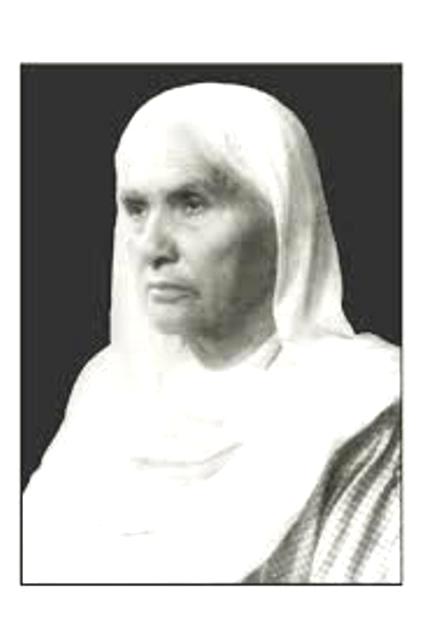
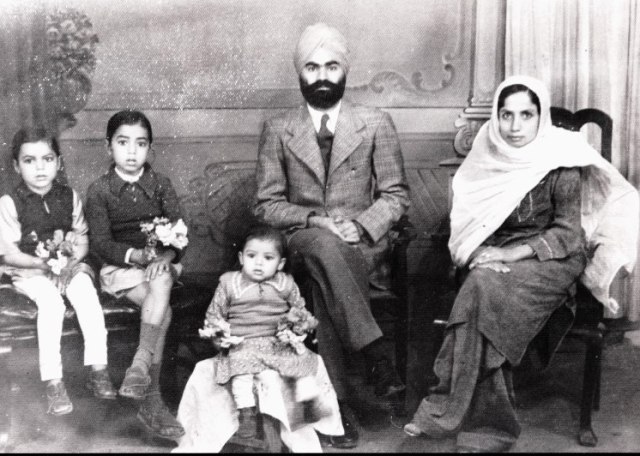
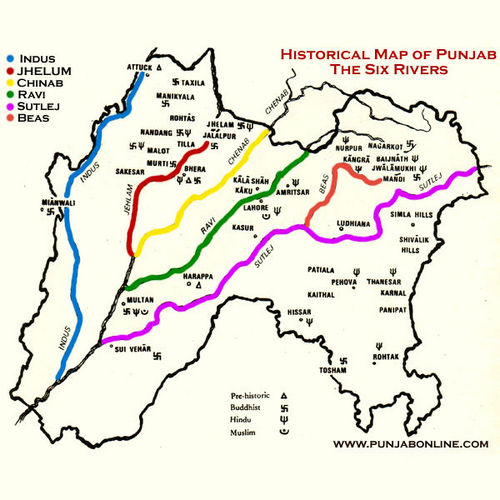
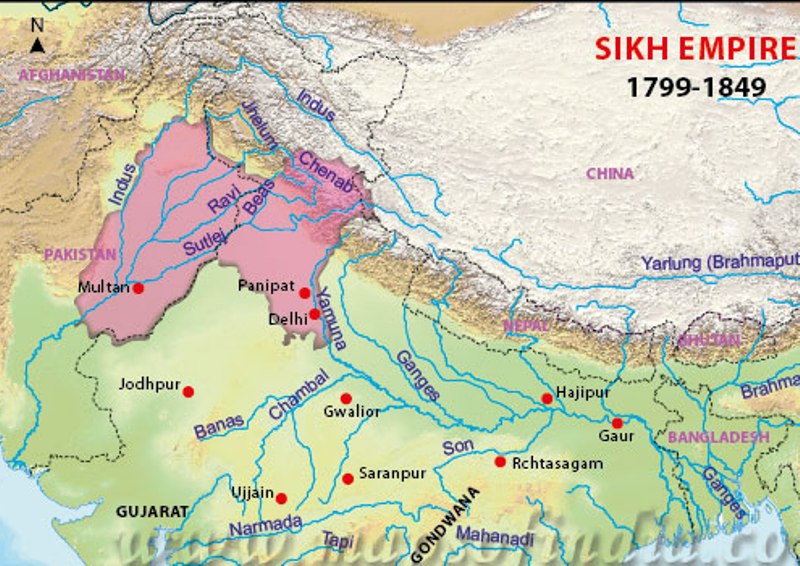
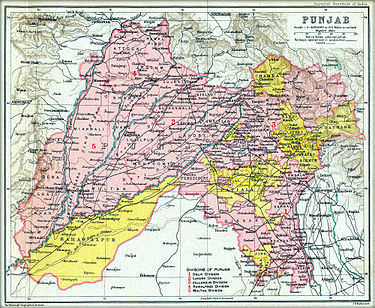
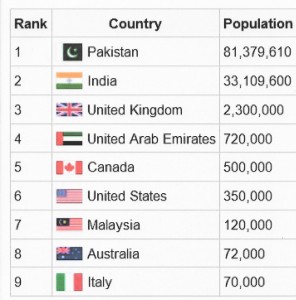
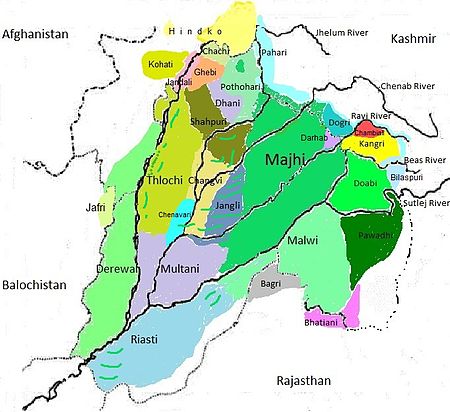
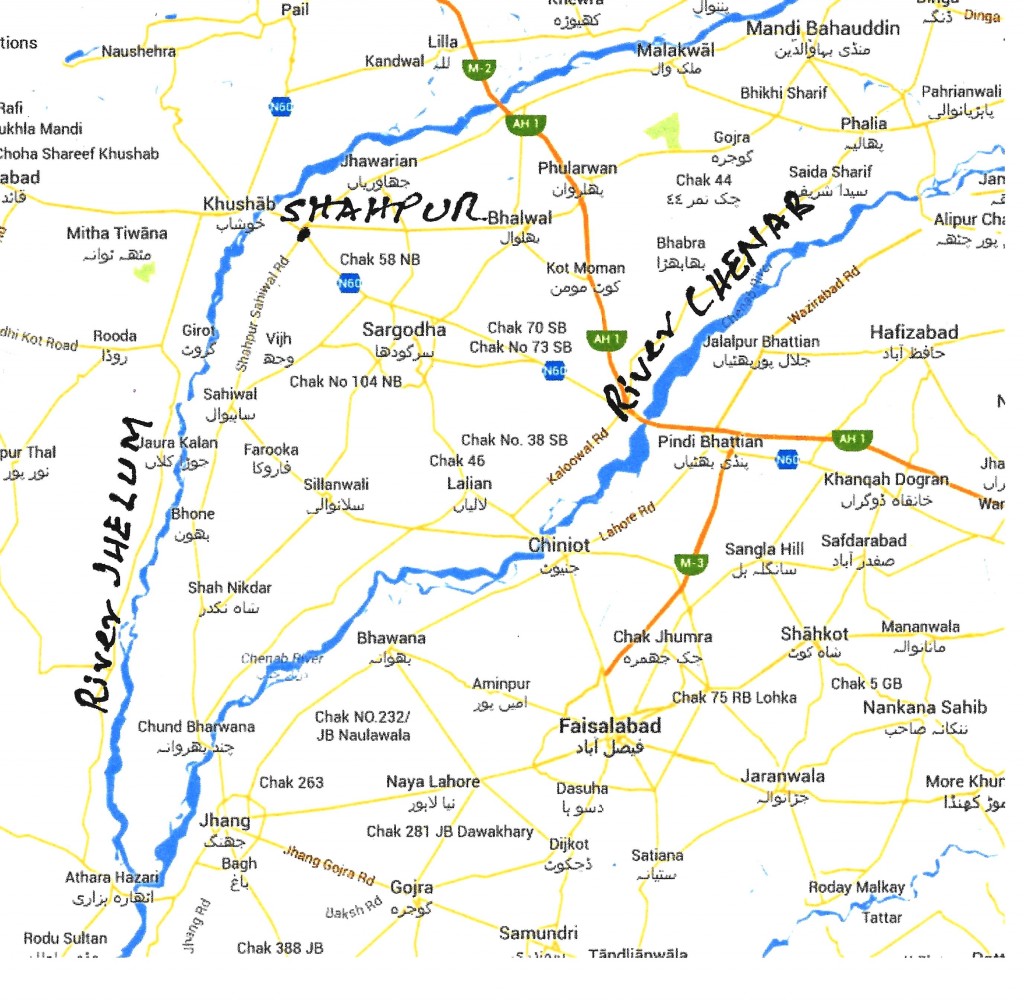
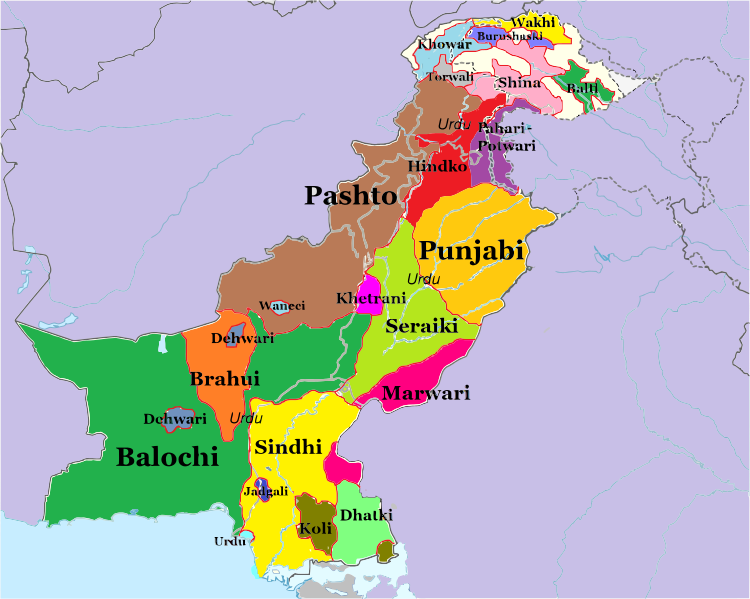
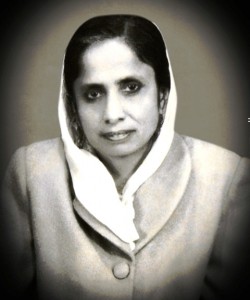





Dear Sir,
This is a wonderful piece. Written so well and for me its educative too. Never knew there is so much to Punjabi language and am sure this kind of consolidated information cannot be gleaned from any other source. Tremendous effort and research on your part to summarise it and put it down in such an incredibly interesting manner.
The parts that touched me the most are the ones which refer to your dear mother and I just loved all her proverbs… all new for me and they stand out for their earthy simplicity and geniality!!
Regards
Dhiraj
Dheeraj,
Through your kind words, you have made my day!
Surjit
Dear Gen,
Simply excellent and very well researched article.
…By the Grace of God, known by several names, but mean the same!
Surjit
Gkaxmap
awrightmom2@aol.com
:
I’m not sure if you still monitor the comments on this website, but I will write something anyway.
Amazing effort on this website my friend! Kudos to you!!!!
I hope you and your future generations always remain attached to their mother tongue.
Waheguru mehar kare.
Sat Shri Akal!
Dear Ms Tiwana,
Thanks for the kind words. I see the comments on older posts once in a while.
You have definitely succeeded in motivating me to write more.
Would you like to contribute to our website?
Regards and Gur Fateh.
Surjit
It was a pleasure meeting you at the bank.
Your mail has been an eye opener for me. Not only is it very well researched, it has shown so much of where our ancestors came from and the languages of our parents.
My fathers family came from Gujjerkhan , whilst my mother, born in Karachi came from Narali. However their background was from Quetta, Balochistan.
As my maternal grandfather joined Burma Shell in the late 20′s, the family shifted to Lahore and then Karachi.
My grand parents , from my father’s side ,used to spend winter in Gujjerkhan, and Summer in Srinagar , so partition was not too much of a problem for them.
I would appreciate if you could put me on your mailing list. With warm regards.
Best,
Jaspal S Anand
Dear Jaspal ji,
Thanks. You are now on my mailing list.
I invite you to contribute a piece.
Best wishes,
Surjit
Excellent journal about your family especially the 10 piece advice. Didn’t get the horse bit.
My dad was from Mianwali and I spent my childhood and school days sharing my bedroom and bed with my grandma. all these languages Multani, Seraiki, Mianwali, and your Shahpuri all more or less the same. I do the website in Sydney: wwwindiandownunder.com.au
Email: indiandownunder@gmail.com
And I write by the name ‘Neena Badhwar’ though official name is Neerja Badhwar
sorry the website I run is:
http://www.indiandowunder.com.au
and also I liked the poetry recitation by Anwar Masood that is at the end.
I am unable to open your website. I get a message, “This site can not be accessed on your system”
Surjit
Dear Sister,
Our roots are in the same part of the world; but look how far we have drifted! I have been to Sydney, but can’t take that journey now. It takes an eternity!
That ‘horse’ story refers to the loyalty of the horses. This animal does not permit everyone to ride it. So, in our village, if you ‘borrowed’ a friend’s horse (or mare) the owner had to ‘introduce’ you to the horse…or else the beast would not let you mount it. The phrase derives from this characteristic of the animal.
Do tell me about yourself and your kinsfolk. And if you like, write something for our blog. It reaches out to about 2000 readers, and we often hear from people who are not on the mailing list.
Do you come to India often?
Regards,
Surjit
[...] http://amolak.in/web/in-search-of-my-mother-tongue/ [...]
[...] http://amolak.in/web/in-search-of-my-mother-tongue/ [...]
What a beautiful write up Surjit ji. The pictures of your great grand father and grand mother are very impressive. I thoroughly enjoyed reading the article. Sorry for the delayed response. I had gone to Toronto to help out my daughter at the birth of her third child. How is my friend and name sake.
I will be coming to India at the end of July or beginning of August. Please let me know what I can bring for you both. I will also share your email with Gurinder.
With best wishes,
Surinder D
See I told you
Surjit and I are
on the opposite sides of a see -saw
to hold you at the top ,
I have to anchor with the ground
now I do hope
my advice you have as sound….
only publish on your own name
and forget all others around,
the Earth rotates about the sun
and
a new SON of Punjab
we all have found.
All the best my dearest
well wisher and friend
colls
JAI HIND!
Dear CSM,
How can I repay the debt which I owe you?
Surjit
Your research is phenomenal in its breadth as well as depth … your collation is flawlessly cohesive … and your expression is so delightfully lucid … all in all it is a superb piece of journalistic presentation.
I salute you and your creativity, passion and presentability.
Vinod
Dear Brother,
Thanks.
Your words are like music, which touches some thing deep within!
Regards,
Surjit
Dear Surjit,
Thank U for sharing this info. It is a brilliant research effort on yr part & deserves a Doctorate.
Sundara Rao
Sir,
Coming from you, the words mean a lot to me!
Wish you all the best.
Surjit
Thanks sir, for sharing it with me.
I read it today, so many days after I received the mail. I saved it to savour it at leasure.
We were busy. My elder son has been blessed with a baby boy, here in USA,and
that kept us all busy.
I t is an absorbing insight into history of punjabi language and its variations.
And a touching piece about your family.
I am saving it.
Regards
Satti Chahal
Dear Satti,
Hearty congratulations on becoming a ‘Dada’ The ‘grand’ children give a lot of joy…more than the children!
Thanks for the kind words. This piece was blessed by our revered mother, and our Punjabi friends have received it very well.
Give our love to your son and his family and regards to Ms Chahal.
Surjit
My dear Surjit ji,
Thank you so much for the beautiful and informative article written on the 17th anniversary of your respected mother. I thoroughly enjoyed it.
Perhaps I mentioned before, I was a student of the Khalsa School in Sargodha, during the years 1936-1938, when my father was posted there as District Inspector of Police.
I take the opportunity to wish you a very happy 73rd birthday. May God give you long and healthy life and inspire you to keep writing such good articles/essays. Pl. convey my congratulations to your wife and other family members on this auspicious occassion..
I do not have a record of the exact date of your birth but vaguely remember as some time in the 1st week of June. Pl. write me your exact day, time and place of birth and I will send you your horoscope.
With love,
Inderpal
Uncle,
Thanks. You are always very generous with your compliments.
I was born early in the morning (perhaps at 0500 hrs) on Saturday, 28 June 1941. Our revered father was the Science and Maths teacher in a school in Peshawar Cantt.
Any plans of visiting India in the near future?
Regards,
Surjit
Namastey uncle ji,
Thank you for your message. I hope that both you and aunti ji are in good health. Ashwini bhaiya keeps sharing information about your well-being from time to time as he is there on whatsapp. But it’s not the same thing as talking.
I have actually started working on Mukammal Asliyat It is part of my schedule for 2014.
It is part of my schedule for 2014.
I am studying at ESIT to specialise in legal translation. So I am travelling much more than I used to.
But I have been reading a lot in various languages… dealing with languages as different as Gujarati and Nepali/ Bengali… and understanding these languages bring the Indian sub-continent much closer instead of separating us. Yesterday, I was translating a birth certificate in Nepali and found that the same word is used for date in both Punjabi and Nepali.
I read your comment about ‘origin of words in English language’ and it is surprising how we have been thinking along the same lines living in different parts of the world. I just bought a dictionary of English etymology (and am reading it)…
Maybe it’s a preparation for a bigger task… I don’t know where this path will lead. But these discoveries are really interesting. Then the works of Nath yogis in Punjabi have taken me to another dimension of this language, a dimension that I didn’t know anything about.
Please keep in touch and keep giving your news. I love hearing from you.
Have a lovely day full of love and happiness!
Namastey and respects to both you and aunti ji.
Cordialement/ Best Regards,
Ritu Bhanot
Linguist
117 Residence des Arts
13 Rue du Hohwald
67000 Strasbourg
http://www.ritubhanot.com
Tel.: 0033 (0)6 50 04 68 49
Sir,
It makes interesting reading, even though the piece is somewhat long.
Have you ever studied how words from other languages enter a particular language and why some words have double or even multiple meanings?
Is it a good idea to learn a lot of languages?
Thanks for sending me this post.
SJ
SJ,
Yes, I have spent some time in studying ‘the origin of words’ In case of English, the dictionaries contain this information. And now you can get it on the Internet.
In my opinion, one should learn a new language only when you need it. I studied French for two years many years ago. But since I did not use it, I remember very little of it. So the effort which I put in has gone down the drain!
Surjit
Surjit,
The entire article is very educating, knowing the history is always encouraging as its bind u with past. I was born in Dehra Dun and never been to West Punjab, as I know our ancestors were from Lahore and moved out from there about two centuries back. But Punjabi will remain a Punjabi. The recital of the Poem is the climax of all the reading.
Vinod
Dear Sir,
Thanks.
Well you were lucky, in that you migrated to Dehra Dun, since it has a large Punjabi settlement. If you had gone to the South, your touch with the mother tongue may have been diluted.
Regards,
Surjit
Sir,
This is extremely enlighetning and interesting. I can relate to my Dadkas(Khushab)and Nankas (Sargodha).God bless your revered mother.
Tremendous effort on your part to summarise the origin and development of Gurmukhi.
Regards
Amarjit
Amarjit ji,
Thanks.
Do share some of your experiences with us!
Surjit
Fascinating story
3007,
How about writing on Malayalam … and the way they have left their homes and got scattered all over the globe!
Do you all keep your touch with your mother tongue? If so, how???
2997
The Great Depression of 1929 – 39 was caused by deflation. It hurt Asian countries more than the industrialised West. Kerala was then an agricultural economy and the people suffered because they got only a pittance for agricultural produce. At the same time, education had spread and so people migrated elsewhere in search of jobs. That was the start of the Malayali diaspora. But now it has reached a stage where a Malayali will work hard only when s/he is outside Kerala.
Lots of Malayalis keep in touch with their mother tongue. They carry their eco-system wherever they go. Unfortunately, I’m not one of them and therefore am not suited to write about it.
Testing Reply Comment
Dear Ashwini,
Thanks. This will be of immense value to me.
You are a GEM!
Surjit
This one is in response to your message. Please check it now,
Surjit
Dear Surjit,
Many thanks.Wish we had called on you… while we were cadets. Damn our shyness. Parents are ones we miss most when they aren’t anymore. I join you in paying ‘Respects and Best Regards’ to the dear departed.
“Punjabi to aandi nahi, per narration te sketches bahut change si ge. Ek haur bhi River si gi… nam si SARASWATI. Labh jau to mainu dasna na bhulee!”
Moru
Dear Vijay,
Thank you for sharing Major Gen, Surjit Singh’s extensive and methodical research- on Mother tongue.
Going through brought tears in my eyes as I remeber my Mother’s native village Bhagham in Gujarkhan District which also had a distinct dialect of Punjabi. lots of good wishes
Amrik Singh
An excellent work on Punjabi language. If you are inquisitive about the language a must read !
Vijay Manchanda
Vijay Sahib,
You have a tender heart beneath your ribs…just like our own brother, Manjit ji!
Thanks for sharing the piece with your friends. Amrik ji has said some very kind things.
Regards,
Surjit
My dear Surjit
You have touched again on a very interesting topic of mother tongue and in particular the Dialects. I wonder always how these dialects have got created. Is it because of only geographical reasons or are outcome of the tribal diversity. Some dialects are very sweet and pleasant in nature and on the other side some sound rude and curt though these are not in actual fact meant to be so. Dialects also change gradually and carry similarity to their neighbourly dialects. North India or what we call Cow Belt has a very gradual change in dialects and the people in this portion of India can reasonably interact with each other. While this not the case in south India where various provinces have their own distinct language and totally different from the Cow Belt. Does it indicate they have settled from different part of the world.
Confining ourself to Punjab Dialects you may go deeper into these and the influences that worked to make them different. Punjabies has been always a very affluent and enterprising and socialy intermixing people. Why do the dialects persist even now eg Majha, Doaba and Malwa dialects.
You have given an emotional flavour to yur write-up by entwining dialects,mother tongue and the mother together. Besides making the write-up intellectual , you have made it very emotional too. Mention of mother aways evokes emotions,whosoever’s mother it may be. Our soldiers always asked for leave qouting their mother’s sickness and we as officers hardly ever refused them the leave.
As the story goes,once Akbar asked Birbal whose milk is the best. Probably he was trying to make a choice between Buffalo,Cow or goat milk for himself. The wise man answered ” Mother’s Milk”.
So Congratulations for writing an intellectual topic with overwhelming emotional orientation.
Gurdayal Singh
Chacha we love you .just reading this made me replay those days spent with Pitaji ,jhaiji,time spent together in Yamuna nagar ,the summer vacations with all the cousins and dear jhaiji satisfying all our whims and fancies.chacha I think soon you will beat google and yahoo whew! So much research and presented so simply thanks love you again.(longest bit I have ever typed).guni
Dear Vir ji and Gunni,
Thanks.
The inspiration comes from you and the family. Every year, around this time of the year, Jhai ji and Pitaji come to me very often, and that takes me down memory lane!
Surjit
Dear Sir,
I am touched by the piece. As an Indian, I relate to this sentiment quite often
In fact the condition as described in the post is applicable for each Bhaarateey equally. All of us have (nearly) lost our mother tongue to mainly English. This language was even unknown to my mother whole of her life till her death in 1985. In short she has lost her tongue to an unknown opponent! Of course we are still continuing at home(s) to converse in mother tongue but I do not know if this system will continue in the homes of our grandson/daughters.
In fact all of us Bhaarateey people have to follow in the foot steps of Gen Surjit Singhjee to search for our mother tongues.
With regards,
M Apte
Dear Sir,
Thanks.
I would be happy if more educated people research their mother tongues. It is the finest way of paying homage to one’s mother!
Surjit
Dear Surjit
Very nicely researched article by you. My roots are the same my friend. I started my schooling in Lyllpur (though born in Montgomery). It was really very nostalgic to go down the memory lane. Many thanks.
Regards,
Amarjit
Dear Amarjit ji,
We share a common heritage…and I have known it all these years.
By a queer coincidence, the names of both the towns you have mentioned have changed. Lyallpur is ‘Faisalabad’ now and Montgomery is called ‘Sahiwal’
So on the map you will not find them!
Surjit
Dear Mukundji and Surjit Singh ji..
Wonderful compilation.
Mukundji,Thanks for sharing it..
Surjitshingh ji,
My gratitude for compiling eye-opening write-up for the mother tongue.. I thoroughly enjoyed it.. in perception of finding my mother-tongue.. that is lost at the level of grand children.. i am attempting to make then learn/understand.. but with lots of opposition starting from my wife to children & like people.. Never the less i am still attached to my mother-tongue, despite i can read /write 5 other languages.. & enjoy conversing several dialects.
Thanks Agains..
Best Regards,
SP
S.P. Mehta.
(Cell # +1 312 608 9836)
On Viber & Vonage too via # +91 94084 91925
Skaype Name: mehtasp25
Enjoy Reading : SP’s Collection For free
Dear Sir,
I see your point. In fact we share a feeling.
I feel that we are tied in a common bond. Where do you live?
Regards,
Surjit
Sir,
I visited Lahore in 2009.
Had a very warm reception.
Was received by a retired Brigadier, 16 years my senior.
Stayed in Punjab Club, equivalent of Gymkhana Club in Delhi.
The Front office manager’s ancestors were from Bijnor,UP.
My CAB driver was from Ropar and the host for a dinner for me was from Ratnagiri.
Visited a market. No different from Karol bagh.
Visitors staying in the Club were not entitled to liquor.
Surjit’s friend Fateh Kaliyar was visiting me so few notes to the bearer did the trick
And we enjoyed chilled beer.
Perhaps, they have mastered the art better because of restrictions prevalent.
Not very different from your Gujarat.
Like age safety is just a number. And you get the bullet if your IC number is on it.
Cheers.
Viren
Dear Viren,
Thanks.
Next time we meet, we are going to speak in our chaste mother tongue, ‘Shahpuri’ dialect only.
Yes. We must go to Pakistan. To hell with security. What difference does it make whether we live to be ninety or die a glorious death at 73!
And as you said, if a bullet with our number has not been made, who can harm us!
Surjit
Viren ……
a vis to pak is a great idea. Would it be safe. With our army back ground. I am told once caught on any pretext its impossible to get out. Risking our old age? Maybe we should wait till relations get better. Rgds.
Vinod
Oye, Bachariya, teri shahpuri chhangi ye.
Well done.
I called my father also Pitaji and my mother as Beeji. Jhaiji and Babey were very common addresses for mother.
Shall we plan a winter visit to Pak?
Regards.
Viren
Dear Mr. Kanwar Sandhu,
Suggest see the attached excellent write up on Punjabi Language, so well researched by Maj Gen Surjit Singh, EME, living in Sector 34.
You may examine to use the part dealing with the Punjabi Language in your esteemed newspaper, The Tribune in consultation with the Author.
http://amolak.in/web/in-search-of-my-mother-tongue/
Best wishes.
Harbhajan Singh
Lt Gen
Hi Surjit ,
Thanks for sharing well researched
paper on our mother tongue .
With warm regards .
ABS Sidhu
ABS,
Thanks. Your message makes me sit on the computer like this!
Surjit
Dear Sir,
Very good heart moving post.
In fact the condition as described in the post is applicable for each Bhaarateey equally. All of us have (nearly) lost our mother tongue to mainly English. This language was even unknown to my mother whole of her life till her death in 1985. In short she has lost her tongue to an unknown opponent! Of course we are still continuing at home(s) to converse in mother tongue but I do not know if this system will continue in the homes of our grandson/daughters.
In fact all of us Bhaarateey people have to follow in the foot steps of Gen Surjit Singhjee to search for our mother tongues.
With regards,
——Mukund Apte
Dear Sir,
Kind of you! And thanks for introducing another friend to us!
Regards,
Surjit
Col Singh ji:
I am eternally grateful to Maj Gen Surjit Singh ji for this very detailed and excellent article.
I had made several attempts to write an article like this but I never came close to what the Maj Gen has published.
By a copy of this e-message I am conveying my feelings to Maj Gen Singh sahib ji.
Kishan Bhatia
Dear Sir,
It is kind of you to say such kind things!
If you choose to write your memoires do share them with us!
Regards,
Surjit
Dear Surjit,
Born in 1944, I am among the last of those in India, who can speak this Shahpuri lingo quite authentically and fluently, much to the amusement of my friends and family members.
The dialect is as crude as those who speak it, but our attempts at speaking sophisticated Punjabi are futile.Speaking in Hindi or English is a much better option.
Unfortunately, there is no “Queen’s Punjabi”. Even if it did exist, Punjabis will still be funny because that is the way they like it!
What a lot of research has gone into your piece.Nostalgic in abundace!
Surinder
Surinder,
I corrected the error in your birth date.
You are right. Punjabi does not have the benefit of a Monarch monitoring its usage. And we do not have the Equivalent of an ‘Oxford University’ producing a dictionary every ten years!
I propose to do a piece on the evolution of languages and origin of words. I did some research on this when I was in IIT Delhi.
Love,
Surjit
Fascinating, Veerji…
I was reminded of some of my mom and dad’s sayings too! Both hailed from Sargodha…
Although I was born in Lucknow, my elder sister who is a doctor and lives in Amritsar will connect more with the dialect.
More later, we must meet soon,,
Warm regards
Neena
Neena ji and PP Bhai Sahib,
The Lord God did not give us a sister…and then we found one, right here!
And that also with the same background and similar thinking!
Yes. We must meet soon.
And Insha allah we will meet soon.
Surjit & Surinder
General sahib,
Truly you gladden the heart. What a beautiful piece! Enjoyed every word. And may your dua be answered and hatred be wiped out. With the present political rhetoric that seems more and more remote but we must all work towards it.
Thanks one again. I greatly enjoy your work.
With salaam
Mirza ji,
Thanks.
I have picked up a lot from you…and hope to do a piece on your life and work, some day.
I also wish to do some research on the advent of Islam in this country, and the contribution of Muslims to India. In particular, I hope to be able to unearth the truth about the so called ‘forcible conversions’
I think you can help me in this.
Surjit
My God sir. It is brilliant. Absolutely a collectors item. This easily ranks amongst the best fom u if not the best. Lucid, well illstrated, simple,emotional heart touching article. Your parents, community and all of us must be proud of you sir. I did not know much about u when i served under u in 509. Probably u disliked me as i was a chain smoker…and i could not come as close to u as I was very fond of Gen Jhaldiyal who was also from our college.Roorkee.
But great sir..keep it going..may u live very long and continue to improve our human values and moral value system through your superb insight into life. M blessed…
MBJ,
I do not remember having been put off by your smoking habits. And as far as I remember, you were one of our best officers. Jhaldiyal had told me some very good things about your professionalism.
God bless you and your family.
Surjit
A very well written article . Very educative and enlightening and of course with Surjeet’s personal emotions which are common to all of us his age and course
Ranjit,
Thanks a million!
Most Punjabis relate with this story. It brings back a flood of memories.
Surjit
Another piece from Surjit. Very well researched. Written with compassion. The poem at the end is really written from the heart. As the Poet said the poem was asking him to write it.
Enlightened by this piece on the Punjabi Language.
Dev,
Thanks.
your words are always well chosen!
How about writing something for this blog… Your life is a fusion of two cultures, and it might make an interesting story.
I our childhood we used to hear:
“East is east and west is west; and never shall the twain meet!”
You have proved it to be wrong!
Regards,
Surjit
GR8 one sir by the way ur father taught several elders in our family in Peshawar and they used to fondly remember him as Master Balwant Singh if I am able to recollect accurately,Suggest u write more frequently u sure have done ur father proud,Cheers Gulu Hora.
Hora,
Thanks.
We are twice blessed. Both our parents were such GEMS! We are what we are due to their blessings!
Surjit
My Dear Sir,
A brilliant peace of research.A true testimony for posterity and an obeisance to a mother with full of love and compassion.
Gangs
Ganga,
Thanks.
These kind words give me the impetus to sit on the computer!
Surjit
Dear Sir.
What an outstanding and lovable piece of research. All Punjabi loving
people of our age would love this piece which has worked as a bridge to our heritage. Nostalgic work indeed. Well done. Our regards.
Vinod
Vinod,
We share a common heritage!
I now understand why I was drawn to you when we met. It was the Sargodha connection!
Thanks for the kind words.
Surjit
Dear Sir.
What an outstanding and lovable piece of research. All Punjabi loving
people of our age would love this piece which has worked as a bridge to our heritage. Nostalgic work indeed. Well done. Our regards.
Vinod
See I told you
people read you
and not
colls
and
my dear when will you take over
Khuswant
the voice of the Force …..
Times need
very few exist of your breed
par excellence indeed.
All the best
Hope you come up with some more
like this .
colls
Hello sir,
Surjit has already taken over Khushwant’s place. The style of writing is equally good.
thanks
we all know
now let the world know too
Hope HT Ed …is listening
Sir,
Don’t bother about the print media. This blog goes viral.
and hows that Dear Thomas do you still remember me
NDA EASY OR HOW
colls
Sir, how can I forget my CSM ?
Very interesting n knowledgeable article. thanks for sharing regards to u n auntyji.
Seema and Paramjit,
It is always a great joy to meet you.
I see a mirror image of your illustrious father. Dr Harcharan always said some very kind words. His Urdu couplets are my treasure!
Love and regards,
Surjit
Brilliant, creative ,emotional and educative-made me feel nostalgic about our own Punjabi-further NW- Hazara Dist- an almost extinct flavour now on this side of the Border; even that colourful culture.
I notice you have been partial to those upper reaches of Ranjit Singh’s empire. Ever wondered if Hindus/Sikhs mainly migrated into NWFP in the wake of Ranjit Singh’s forces or preceded it- am referring to post Islamic advent? Am researching my Hazara roots!
A touching tribute to the towering personality of your revered Mother. My compliments and regards.
Sir,
Thanks. You are always very kind with your words, specially to me!
I suspect subjectivity is inherent to all of us…after all we are human!
I intend to do some work in this field. And if you give us your story on Hazara, it will be invaluable. My wife is from a place called Mirpur, which is just on the other side of Jammu. Her brothers are also doing some research on this.
With best wishes,
Surjit
Thanks for enlighying article.I remmeber her ad s noble lady
Surindat
Surinder,
Thanks.
I think God made mothers since He could not be every where!
I remember your mother, just the same way!
Regards,
Surjit
Surjit, your detailed expose titled ‘Mother Tongue’ is well researched and comprehensive. I’ve gained from it and my gratitude to you. I’ve myself narrated in the past this touching Masood Anwar poem at a number of forums. Signing off with an apt Matla and a Shayer by Nadeem Shaad-
” Har Qadam Par, Jo Humey Be-Aabru Kartey Rahey
Zindagi Bhar, Hum Unhin Ki Aarzu Kartey Rahey”
” Maa Ki Khidmat Hai Ibaadat, Ye Sunaa To Tab Lagaa
Ye Ibaadat, Aaj Tak Hum Be-Wajoo Kartey Rahey”
Be-Wajoo= w/o cleaning face and hands.
SN,
You should have been a poet…
What the hell have you been doing all these days in the Army?!
Surjit
Lajawab sir !
Ajay,
Subhaan-allah!
Surjit
Namastey uncle ji,
Thanks a lot for this beautiful and interesting article.
I loved it.
Ritu,
Thanks.
I now look forward to receiving a piece from you on what it feels to deal with so many languages.
And when will you start working on translating ‘Mukammal Asliyat’ ? I suggest you give yourself a time bound schedule.
I shall soon send you a poem by a Gujarati lady on this subject. She is married to a German, and her name is Sujata.
Regards and best wishes,
Surjit Uncle
Namastey uncle ji,
Thanks a lot for this beautiful and interesting article.
I loved it.